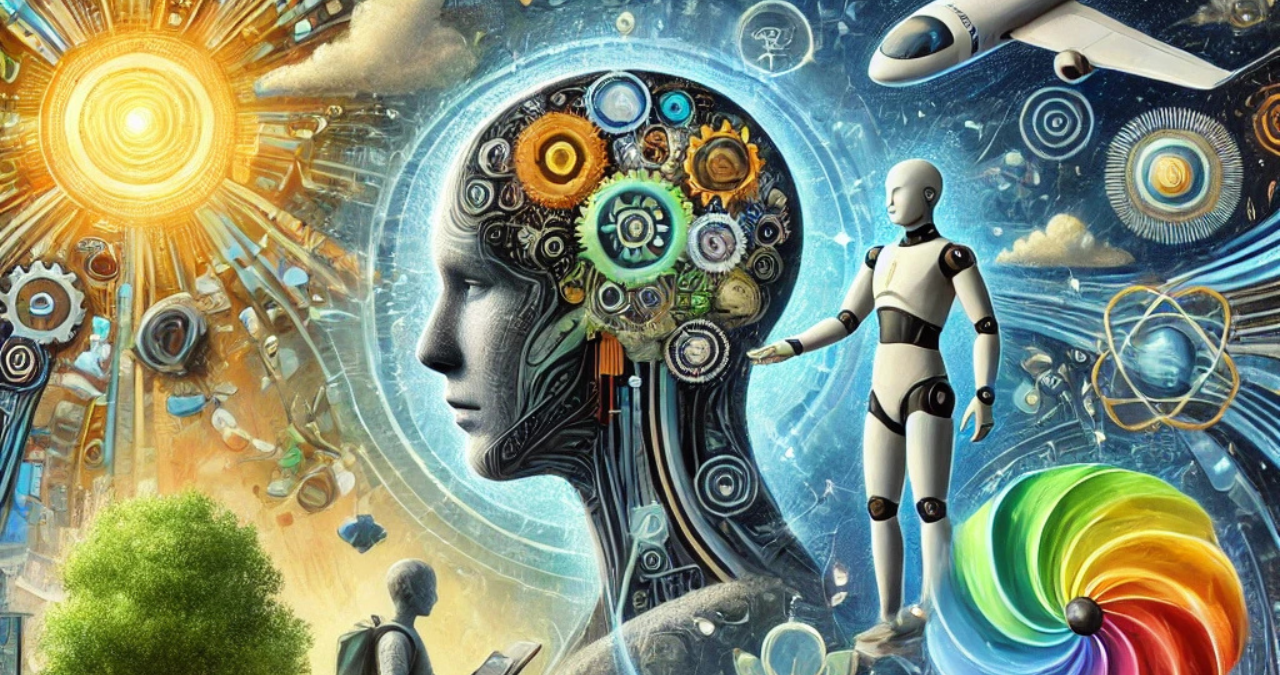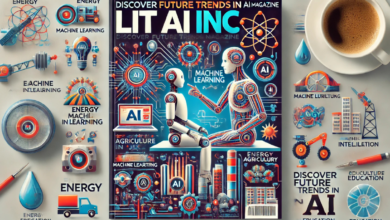Introduction
Artificial Intelligence (AI) has transcended its initial allure of high-the good ai novelty to become an essential aspect of our daily lives, redefining what technology can achieve. Referred to as “The Good AI,” this technology involves the simulation of human intelligence by machines designed to think, learn, and make decisions like humans. This transformative technology impacts various sectors, from healthcare and education to business and environmental management. This article explores the beneficial roles of “The Good AI” across these diverse areas, showcasing how it contributes positively to modern society.
The Evolution of AI: A Historical Perspective
“The Good AI” has roots that trace back to the mid-20th century, marked by an ambition to create machines that could replicate human reasoning. This journey, from simple computational programs to sophisticated systems capable of learning and adapting, showcases the significant evolution of AI. Today, AI’s capabilities have expanded immensely, powering systems from intelligent assistants in our homes to complex algorithms that manage data across industries. This evolution highlights the ongoing potential of “The Good AI” to drive future technological and societal advancements.
AI in Healthcare: Revolutionizing Treatment and Diagnosis
“The Good AI” is making groundbreaking strides in healthcare by enhancing diagnostics and patient care efficiency. AI algorithms can swiftly analyze vast amounts of medical data, leading to faster and more precise diagnoses. In personalized medicine, “The Good AI” is instrumental in using genetic data to tailor treatments to individual needs, optimizing therapeutic effectiveness and minimizing adverse effects. Additionally, AI-powered robotics has revolutionized surgical procedures, improving precision and reducing risks associated with human error. As “The Good AI” continues to evolve, its potential to predict disease outbreaks and manage public health data is becoming increasingly evident, underscoring its vital role in advancing global healthcare systems.
AI in Education: Personalizing Learning

“The Good AI” personalizes learning experiences in the educational sector, accommodating individual learning styles and paces. This technology not only supports students by providing customized tutoring but also assists teachers by automating administrative tasks, thereby enhancing educational delivery. The deployment of AI in managing institutional data and optimizing scheduling further demonstrates its utility in academic settings. These applications prove that “The Good AI” is not a futuristic concept but a present-day reality, enhancing educational accessibility and effectiveness worldwide.
Conclusion
“The Good AI” is a testament to the positive impacts of artificial intelligence technology across various sectors. By improving efficiency, personalizing services, and driving innovation, “The Good AI” demonstrates its capability to improve society. However, as we harness its full potential, it remains imperative to address its ethical challenges, ensuring that fairness, privacy, and security principles govern AI development. With careful management and ethical oversight, “The Good AI” promises to lead us toward a brighter and more equitable future.
Frequently Asked Questions (FAQs)
- What exactly is “The Good AI”?
- “The Good AI” refers to applications of artificial intelligence that positively impact society by improving efficiency, accuracy, and productivity across various sectors while minimizing harm and maximizing ethical considerations.
- How is “The Good AI” transforming healthcare?
- “The Good AI” enhances healthcare by improving diagnostics, personalizing treatment plans based on genetic information, and increasing the precision and safety of surgical procedures through robotics.
- What role does “The Good AI” play in education?
- In education, “The Good AI” facilitates personalized learning by adapting content to fit individual student needs and speeds, assists teachers with administrative tasks, and optimizes educational resources and scheduling.
- What are the ethical concerns associated with “The Good AI”?
- Key ethical concerns include ensuring the fairness and transparency of AI algorithms, safeguarding user privacy, and securing data against breaches, all crucial for maintaining public trust in AI technologies.
- Can “The Good AI” be misused, and how do we prevent this?
- While “The Good AI” holds significant positive potential, there is a risk of misuse, such as privacy violations or bias in decision-making. Preventing misuse involves rigorous testing, transparent design processes, ongoing monitoring, and establishing strong regulatory frameworks.
You May Also Read: https://buzusanews.com/proxiyum/

